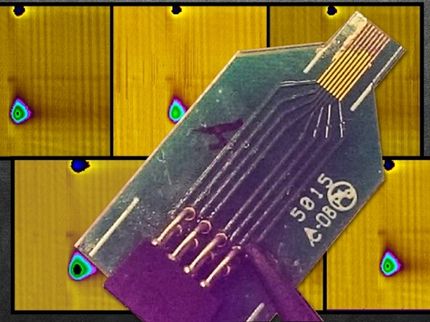Addex Achieves Second Milestone in Parkinson's Disease Collaboration with Merck & Co., Inc.
Data Confirm Non-Dopaminergic Approach to Treating Parkinson's Disease
Advertisement
Addex Pharmaceuticals announced that the second preclinical milestone has been achieved in an exclusive collaboration and license agreement with Merck & Co., Inc. (through its affiliate Merck Sharp & Dohme Research Ltd). The collaboration is focused on developing an emerging type of drugs, called allosteric modulators, for treatment of Parkinson's disease and other undisclosed indications. Allosteric modulators have broad potential to address important therapeutic targets; this collaboration with Merck is focused on developing drugs that specifically activate the metabotropic glutamate receptor 4 (mGluR4). The preclinical study showed the desired non-dopaminergic activity profile after oral administration of mGluR4 positive allosteric modulator (PAM) in an animal model of Parkinson's disease.
"Innovative non-dopaminergic therapies represent a significant opportunity to address an important unmet medical need in Parkinson's disease patients," said Vincent Mutel, CEO of Addex.
Addex will receive $500,000 for achieving the second preclinical milestone. Addex received $250,000 after achieving the first preclinical milestone during the first quarter of 2008. Under the terms of the agreement, first announced in December 2007, Addex received $3 million upfront and is eligible for up to $106.5 million in research, development and regulatory milestones for the first product developed for multiple indications. Additional milestones of up to $61 million would be payable if a second and third product is developed. Addex is eligible to receive undisclosed royalties on sales of any products resulting from this collaboration. Merck is responsible for clinical development.
mGluR4 may play an important role in Parkinson's disease, which is a debilitating movement disorder. Current treatments focus on dopamine-replacement strategies, however most patients reach a stage where dopaminergic treatments are no longer effective. There can also be debilitating side effects with dopaminergic treatments and many patients limit doses so their side effects will be less cumbersome. The recent success of surgical approaches suggests that bypassing the dopamine system may provide a more effective treatment strategy. It is believed that selective activation of mGluR4 is one way to do this and could correct the circuitry that modulates motor excitability. This has the potential to provide significant benefit in Parkinson's disease.
Published research* shows that mGluR4 activators, like those in development at Addex, could work via two distinct mechanisms to alleviate symptoms of Parkinson's disease and, potentially, even slow the progression of the disease: 1) mGluR4 activation triggers a compensatory mechanism that may spare or potentiate the use of dopamine receptor activators; 2) mGluR4 activation may have a neuroprotective effect that helps to preserve the brain's dopaminergic neurons.
*Nature Reviews Neuroscience, Vol 6, Oct. 2005, pp 787-798



























































